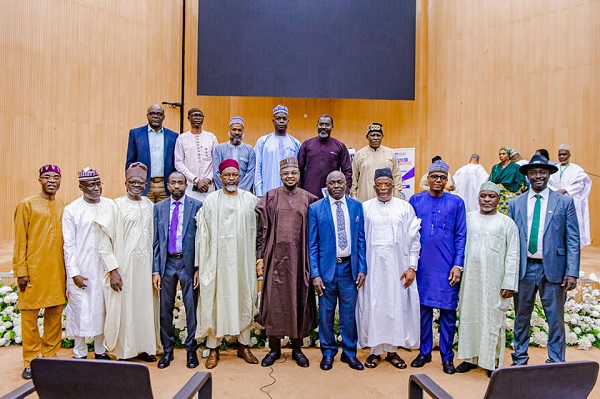
The Federal Government under the leadership of President Muhammadu Buhari has inaugurated a presidential council on digital and e-government master plan to strengthen the capacity of government, to develop, adopt and deploy technologies to make government more efficient, transparent and to improve Nigerian’s global standard in doing business.
The Minister of Communications and Digital Economy, Prof. Isa Pantami inaugurated the members on behalf of the president.
“The National Digital Economy Policy and Strategy, which is the umbrella policy of the current administration, is not only Federal policy but also a national one. Being a national policy, it means other tiers of government have a strong role to play, particularly our governors and other institutes under their leadership.
“Mr. President, in his wisdom, has selected one governor from each political zone to represent various zones in the country, so that any policy or decision to be taken at the Federal level will be accepted and implemented by our states since they are represented and they are part of this national assignment.
“For the south-south, the governor of Edo State has been selected and appointed by Mr. President; from south-east, the governor of Imo State; from south-west, the governor of Lagos State; from the north-central the governor of Nasarawa State; from the north-west, the governor of Kaduna State and from the north-east, the governor of Gombe State.
“Mr. President has appointed two vice chancellors to represent academia; the vice-chancellors of the Ahmadu Bello University Zaria and the Federal University of Technology Owerri.”
The industry is also represented in the council, based on the president’s approval, by the Association of the Telecommunication Companies.
“In the national digital policy and strategy which has been approved and launched by Mr President, there are eight pillars implemented. The pillars include developmental regulations to ensure effective regulations of the sector to facilitate development, digital skills, solid infrastructure, service infrastructure, digital services, soft infrastructure, digital society and technology, indigenous context and development promotion.
“From the time the president launched the policy till date, a lot has been achieved. For some of the pillars, more than 70 per cent has been achieved. Many states have good initiatives on digital economy. The framework is going to be developed, so that our sub-nationals will play their roles and the Federal Government will continue to intervene where necessary.
“The president’s appointment of the Minister of Trade, Industry and Investment [is to] ensure that we bring many more benefits to our country.”
In his remarks, the director-general of the National Information Technology Development Agency (NITDA), Mallam Kashifu Abdullahi, stressed that “there is a need for the council to sit down and look at the tropical issues and set a direction for the e-government and the digital economy, provide political and overall leadership and coordinate and provide overall direction in promoting e-government and digital economy, as well as facilitate mutual benefitting partnership through the private sector and development partners as an alternative source of funding to derive the implementation of the e-government and the digital economy programme.
“Under the National Digital Economy Policy and Strategy, we have an ambitious target of achieving 95 per cent digital literacy by 2030.”
In his remarks, the Imo State governor, Sen. Hope Uzodimma disclosed that part of the assignment given to the secretariat is to develop a framework that will enable the state to align properly with the Federal Policy of a digital economy.

